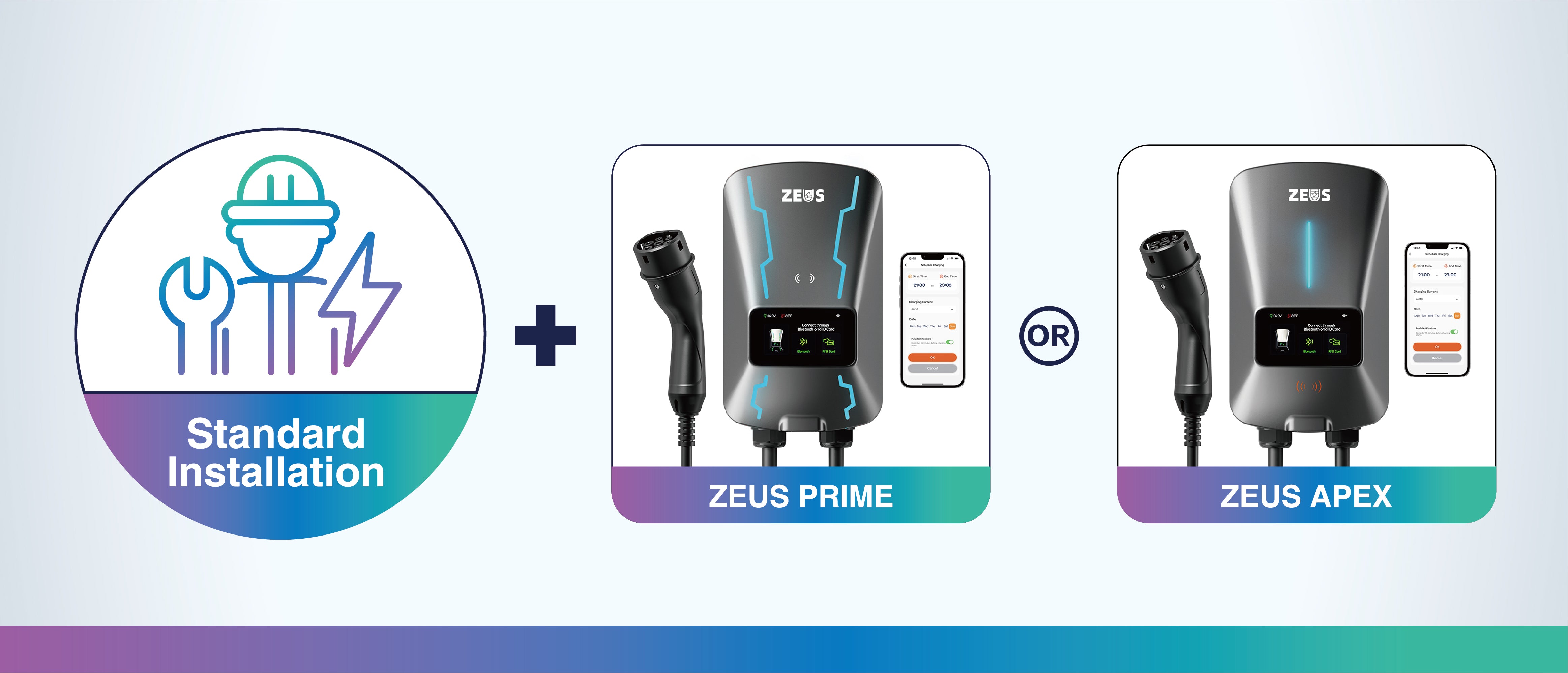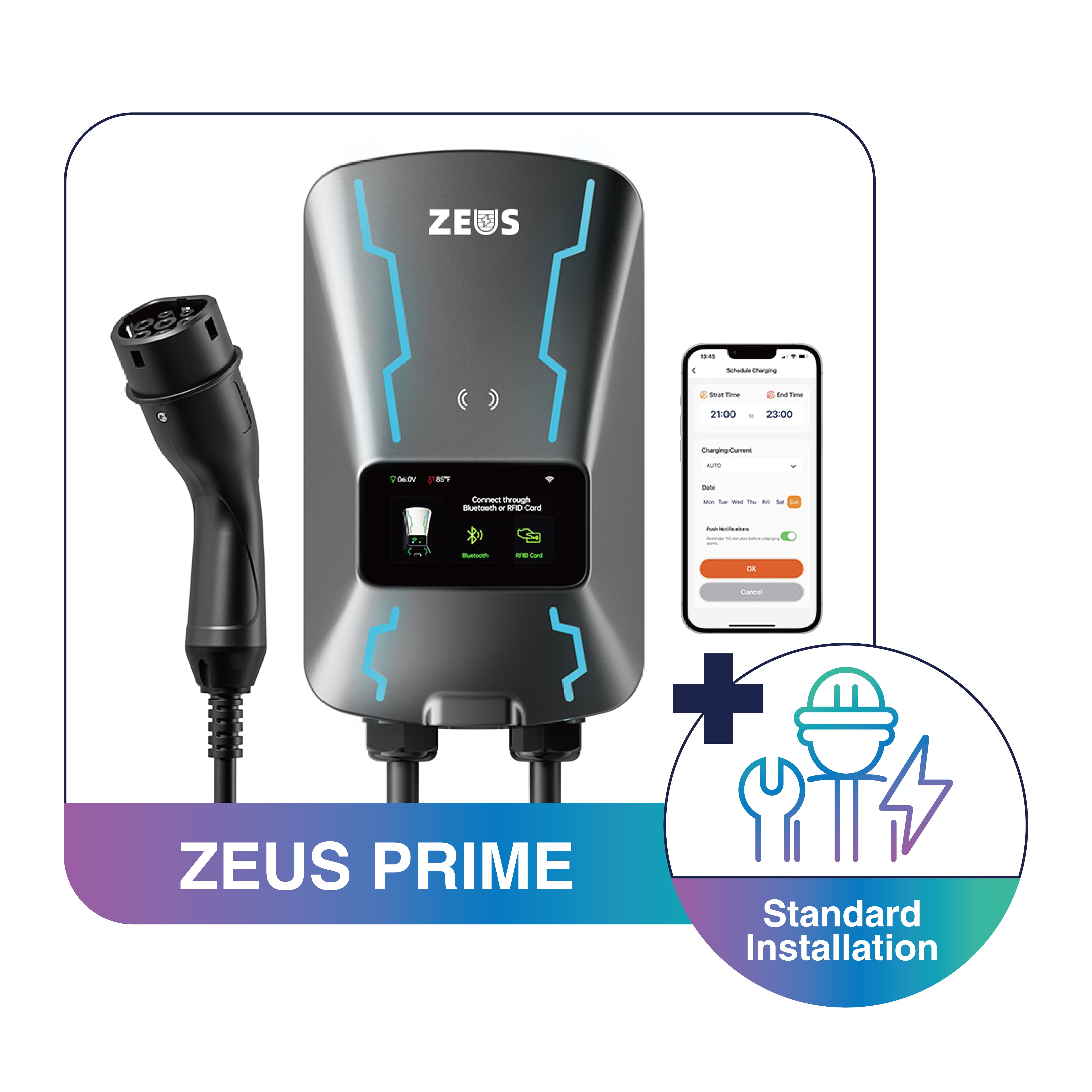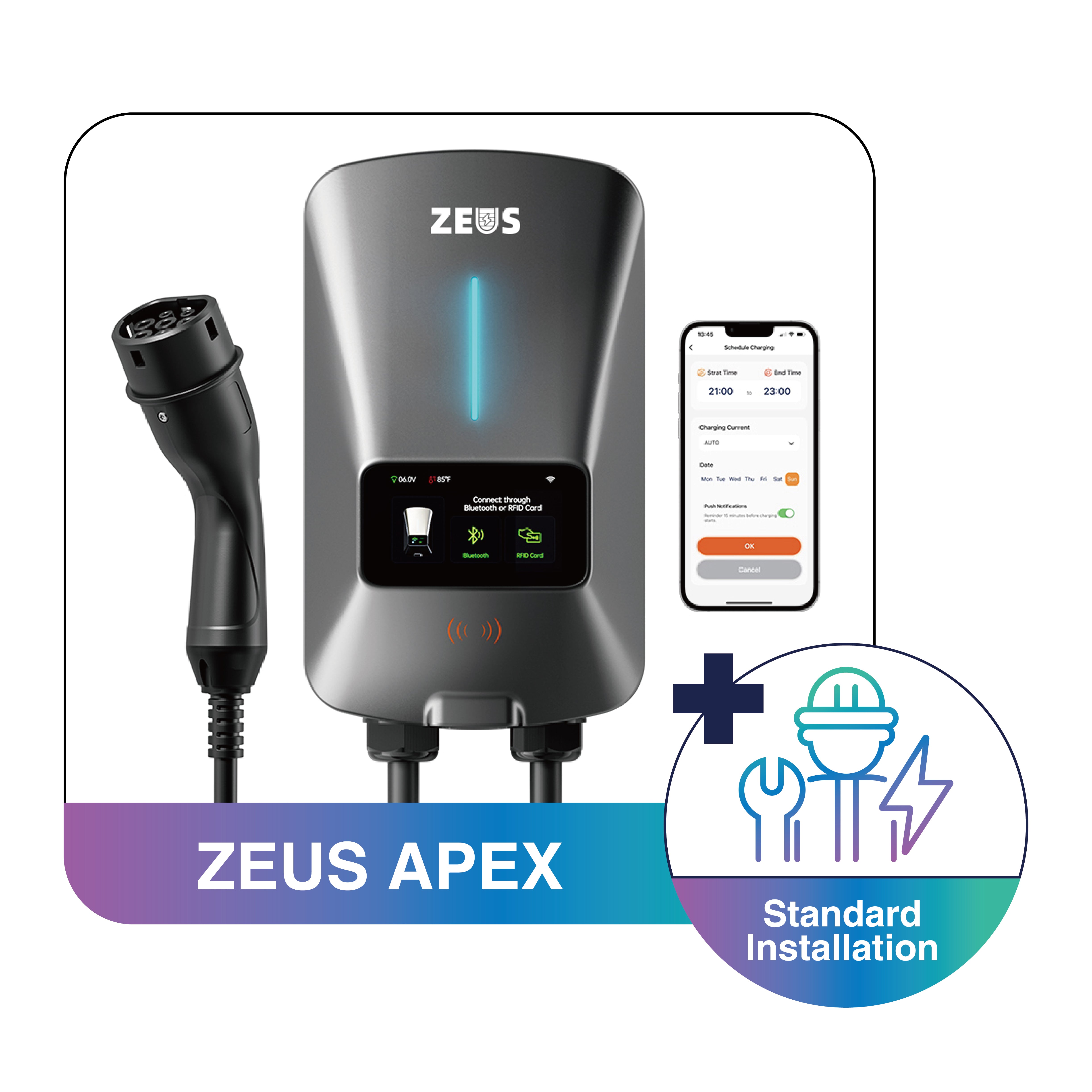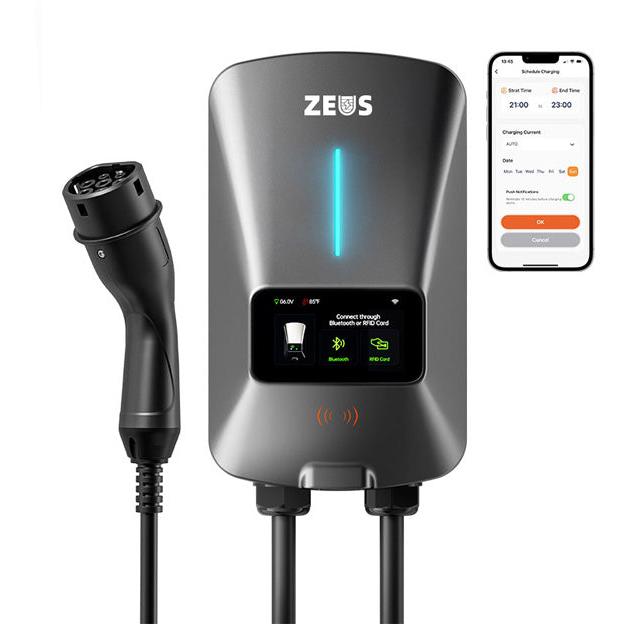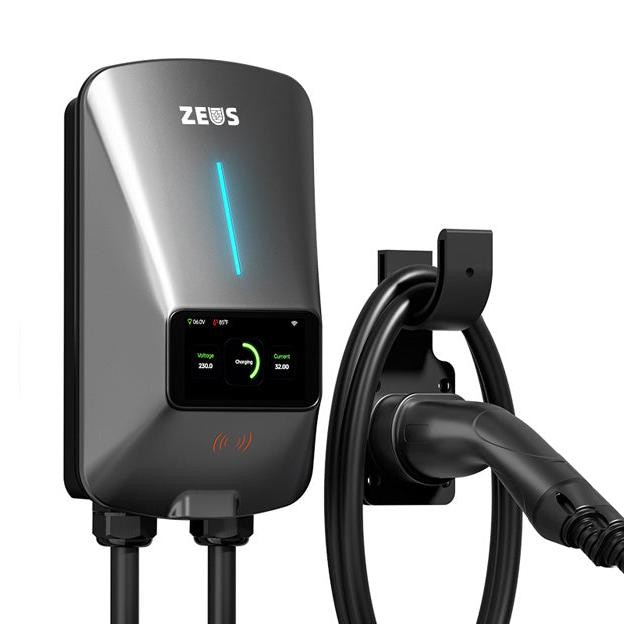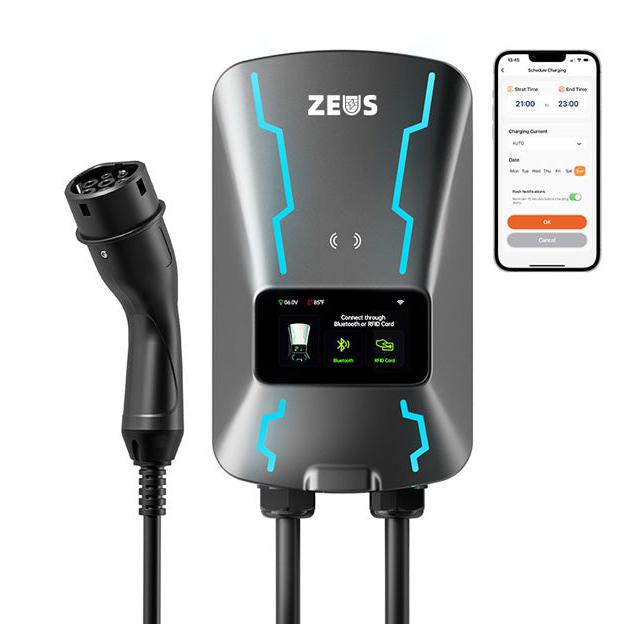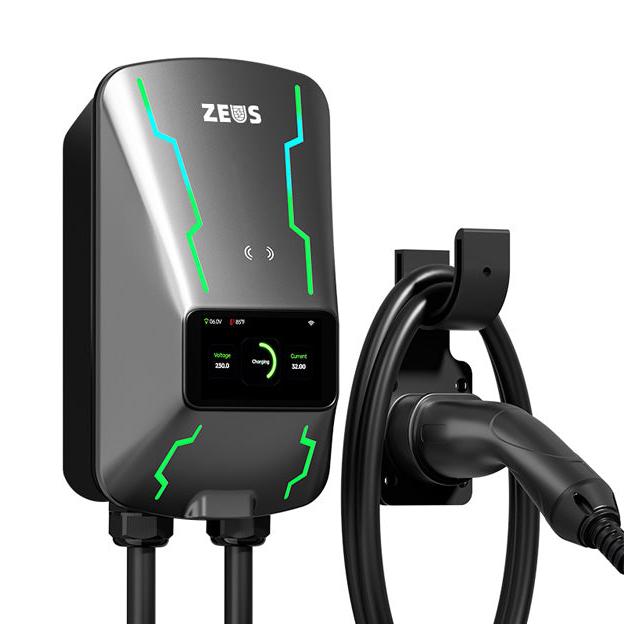AC Charging: A Versatile, Convenient, and Battery-Friendly Choice

Image:Zeus Apex AC 7kW EV charger.
AC charging, also known as “Level 2” charging, is the most common type of EV charging, as it uses the standard grid power to provide a steady, reliable charge. Unlike DC charging, AC charging relies on the EV’s original charger to convert power, resulting in numerous benefits, particularly for battery health and everyday convenience.
1. Battery Protection and Longevity
A key advantage of AC charging is that it uses the car’s originally built-in charger to convert the power, allowing for a controlled and consistent charge. This method is gentler on the battery compared to the high-power delivery of DC fast charging, which can strain the battery over time.
2. Flexibility and Accessibility
AC chargers are highly versatile and can be installed at homes, workplaces, and public locations, offering drivers the convenience of charging whenever they need it.
3. Cost-Effectiveness
Compared to DC chargers, AC chargers are more affordable to install and operate. Since DC chargers require specialized equipment to deliver high-power, fast charging, they are typically more expensive and better suited for high-traffic public areas. For daily driving needs, an AC charger offers a perfect balance of charging speed and affordability.
4. Enhanced Safety
AC chargers are known for their stable power delivery, which makes them a safe and efficient option. Zeus EV Chargers incorporate advanced safety features to protect both the vehicle and the user, providing peace of mind, especially for overnight or extended charging sessions.
DC Charging: When Speed is a Priority

DC charging, or “Level 3” fast charging, is commonly found at high-traffic locations such as highway rest stops. These chargers bypass the car’s onboard charger, directly delivering high-power DC electricity to the battery. While DC charging offers quick power-ups—reaching up to 80% battery in 30 minutes—it is typically more costly, requires specialized installation, and can strain the EV battery if used frequently.
Both AC and DC charging are essential to the EV ecosystem. For daily use, however, AC charging stands out for its balance of convenience, battery protection, safety, and cost-effectiveness.

